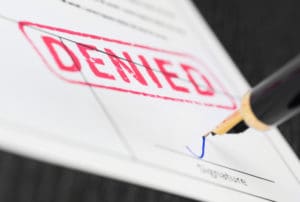What can I do when Medicaid will not pay for a needed procedure
When Medicaid denies coverage for a needed medical procedure, it can be frustrating and stressful—but you do have options. Here’s a step-by-step guide on what you can do:
✅ 1. Understand the Denial
Carefully review the denial letter or Explanation of Benefits (EOB). Look for:
- The specific reason Medicaid gave (e.g., “not medically necessary,” “not covered,” “prior authorization denied”)
- Any codes or notes explaining the policy
- Your appeal rights and deadlines
✍️ 2. File an Appeal
You have the right to appeal a denial through your state’s Medicaid program.
Steps:
- Request a “fair hearing” or file a written appeal (instructions are typically on the denial notice)
- Include:
- Doctor’s letter explaining why the procedure is medically necessary
- Any relevant medical records or second opinions
- Your personal statement if needed
🕒 Time-sensitive: Most states give you 30–90 days to file an appeal.
🧑⚕️ 3. Ask Your Doctor for Help
Doctors and clinics often:
- Know how to write strong medical necessity letters
- Can re-submit prior authorizations with better documentation
- May have experience navigating Medicaid rules
📞 Have your provider’s office contact Medicaid directly to request peer-to-peer reviews or additional documentation.
💡 4. Explore Medicaid Exceptions or Waivers
Depending on your state:
- There may be exceptions for non-covered procedures if it’s the only treatment option
- Some states offer waiver programs that allow expanded services for individuals with disabilities or chronic conditions
✅ Contact your Medicaid caseworker or State Health Department to ask about waiver eligibility.
💰 5. Seek Financial Assistance Programs
If the appeal is unsuccessful:
- Ask the hospital or clinic about financial aid, charity care, or sliding scale fees
- Some nonprofit hospitals are legally required to provide care regardless of ability to pay
- Local nonprofits or foundations may offer grants for specific conditions
💊 For medications or specific treatments, look into patient assistance programs through manufacturers.
🤝 6. Contact a Medicaid Advocate
There are professionals and organizations that can help you navigate the system:
- Legal aid offices (free in many cases)
- State Ombudsman offices
- Patient advocacy groups (e.g., for cancer, rare diseases, mental health)
They can help with:
- Preparing appeals
- Negotiating with Medicaid or providers
- Understanding your legal rights
🧭 7. Consider Alternate Coverage (if eligible)
If you’re ineligible for full Medicaid support or need a broader network:
- Explore dual eligibility (Medicare + Medicaid)
- Look into Marketplace plans (via HealthCare.gov) if you lose Medicaid eligibility
- Check for short-term health insurance if it’s a gap issue
📝 Summary Checklist:
| Action | Notes |
|---|---|
| 📄 Read the denial carefully | Understand why it was denied |
| ✍️ File an appeal | Act quickly—deadlines apply |
| 👩⚕️ Talk to your doctor | Get medical justification and support |
| 🧾 Check for waivers | Some states allow expanded coverage |
| 💸 Ask about financial aid | Clinics often have assistance programs |
| 🤝 Get an advocate | Legal or nonprofit help can make a big difference |



